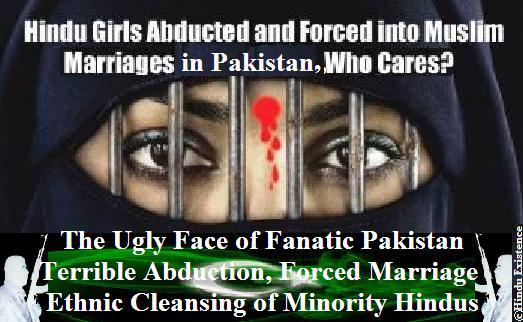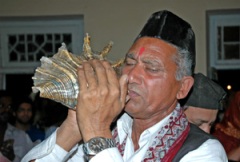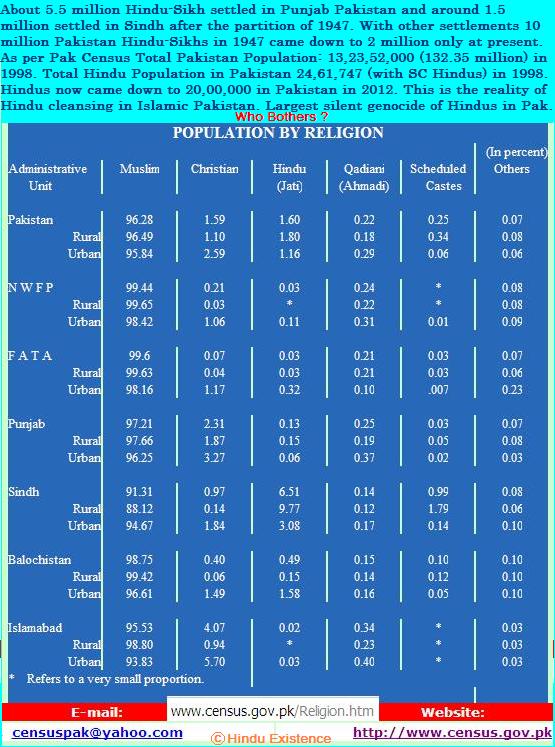 Yes,
it is not easy to turn the Malays against the Chinese any longer, not
like in 1969. It is easier to turn the Chinese against the Malays. By
doing so the Malays would merajuk
(sulk). They may not take up arms like they did in 1969. That may be
too much to expect from present day Malays. But the Malays suffer from
an illness called cepat kecik hati (feel hurt too easily).
Yes,
it is not easy to turn the Malays against the Chinese any longer, not
like in 1969. It is easier to turn the Chinese against the Malays. By
doing so the Malays would merajuk
(sulk). They may not take up arms like they did in 1969. That may be
too much to expect from present day Malays. But the Malays suffer from
an illness called cepat kecik hati (feel hurt too easily).NO HOLDS BARRED
Raja Petra Kamarudin
It was soon after the March 2008 general election. Umno was holding a meeting in Subang Jaya to discuss the election ‘disaster’. All the key Umno ‘activists’ were going to be there, many veterans or children of veterans of May 13.
I invited half a dozen of my Chinese and Indian friends to follow me to the meeting. ‘Why the hell would we want to attend an Umno meeting?” they asked me. “To learn, of course, to learn.”
Speaker after speaker took the rostrum. The crowd was stirred. “What happened in the March general election was exactly like what happened in May 1969,” said one renowned Umno activist, son of one of the architects of May 13. “Therefore, what happened in March 2008 also needs the May 13 solution.”
You do not need to be a standard six student to understand what that meant. However, considering that many of you who post comments in Malaysia Today do not get what is being said even when it is sticking up your arse, maybe I should spell it out lest you start huffing and puffing off tangent.
On 11 May 1969, the opposition almost toppled the ruling party and grabbed or checkmate a few states. Two days later, the ruling party counter-checkmated the opposition by triggering race riots.
On 8 March 2008, it was history being repeated, déjà vu. Hence, the same ‘solution’ will be required to ‘solve’ the 8 March 2008 disaster.
Unknown to most Malaysians, a few attempts were made to arouse the sentiments of the Malays like what they successfully did in 1969. But this time around the Malays were not aroused like in 1969 so the effort failed.
An example would be like what happened in Penang when some Indian-looking Malays held an anti-Chinese demonstration against Lim Guan Eng in front of Komtar in Penang and the white skullcap wearing Malays faced them and dared them to cross the line.
The 500 Indian-looking Malays did not dare take on the 1,000 white skullcap wearing Malays. There were no Chinese in sight. It was Indian-looking Malays versus white skullcap wearing Malays. And the white skullcap wearing Malays were there in defence of Lim Guan Eng, a Chinese.
So it looks like the race card no longer works in this day and age like it did back in 1969. A new strategy would be required. Instead of trying to turn the Malays against the Chinese, which will not work, why not let the Chinese whack the Malays? If we try to tell the Malays that the Chinese are the enemy, the Malays will not buy that. But if the Chinese whack the Malays then in time the Malays will get sick and tired and turn their back on the opposition.
The Chinese are more aggressive than the Malays. Even Tun Dr Mahathir Mohamad thinks so when he lamented that the Malays are too passive and should be more aggressive like the Chinese. So, instead of trying to work up the Malays against the Chinese, why not work up the Chinese against the Malays?
When provoked, the Chinese react very strongly with foul language and all. Malays, being more feudalistic (another thing about the Malays which Dr Mahathir is pissed about) have been ‘trained’ since when they were toddlers to kowtow to authority. Even the Friday prayer kutbah (sermons) keep reminding the Malays that they must kowtow to authority. So the Malays are not as militant as the Chinese who kicked out their feudal lords a long time ago.
The Malays are also more forgiving. They can whack you for ten years but once you turun padang and go visit them at home, they become very honoured and immediately become your strong support. You also need to just hold the chief for the rest to follow -- again, the herd mentality, as Dr Mahathir said. Even Tunku Abdul Rahman, Malaysia’s First Prime Minister, agrees with this. ‘Pegang kepala cukup. Yang lain akan ikut,” said the Tunku.
But Malays have two idiosyncrasies. One is ‘Melayu pantang di cabar’ (it is taboo to provoke a Malay). The other is the amuk syndrome. Is not the English word amok taken from the Malay word mengamuk? That’s because Malays appear to be the only race that has a penchant for doing this (the result of the legend of Hang Jebat, a Malay hero).
Malays also have a proverb that goes: biar mati anak, jangan mati adat. Malay culture and traditions must be upheld even if the child needs to be sacrificed.
And what else does the Malay hold dear and will kill or die for? What else? Islam of course! If the Malays can be made to feel that Islam is being compromised, challenged, insulted, etc., then they will rise in anger as they do even if they are not Malays like in Pakistan, Afghanistan, etc. A challenge against Islam is a challenge against God and hence you must die or else I will die trying to kill you. That is my duty as a Muslim.
Take all these ingredients and mix them into a bowl and what do you get? What you get would be a fruitcake. And we need fruitcake Malays if we want to turn the Malays against the Chinese.
Yes, it is not easy to turn the Malays against the Chinese any longer, not like in 1969. It is easier to turn the Chinese against the Malays. By doing so the Malays would merajuk (sulk). They may not take up arms like they did in 1969. That may be too much to expect from present day Malays. But the Malays suffer from an illness called cepat kecik hati (feel hurt too easily).
Hey, I can believe that. I am only part Bugis, part Orang Asli and part Welsh and even I get kecik hati with many readers of Malaysia Today when I read the comments they post. Even I, who can claim to be not pure Malay, have many times considered just closing down Malaysia Today and tell the lot of you to go to hell or go screw yourselves. What more the Malays from the kampongs?
Today, PKR, PAS and Umno are united on the Erykah Badu ban. They are also united on the view that apostasy needs to be combated. So the Malays can, if they want to, set aside their political differences and unite under a common cause. You just need to find that cause. And there are enough causes out there to latch on to. The rest would be clever engineering.
And this is something the Chinese do not understand. The Chinese are prepared to compromise. They can accept a bad government in the interest of cari makan (rice bowl). They can accept ABU even if we replace a bigger devil with a smaller devil and even if both are devils but merely differ in degree. They can accept the lesser of the two evils as long as the lesser evil is to their interest.
The Malays, as Tun Dr Mahathir lamented, are too passionate, sentimental and emotional (which makes them better lovers, of course -- and am I not passionate, sentimental and emotional in the way I write?). The Malays, according to Tun Dr Mahathir, are not pragmatic like the Chinese. And this is why the Malays fail while the Chinese succeed, argued Tun Dr Mahathir.
Sun Tzu said: to win the war you need to know your enemies. Raja Petra Kamarudin wants to add to what Sun Tzu said: to win the war you also need to know your friends.
The question is: which one is your friend and which one is your enemy? Your enemy is not the 51% Malay voters who voted Barisan Nasional in March 2008. Your enemy is certainly not the 49% Malay voters who voted Pakatan Rakyat in March 2008. Your enemy are those who walk in the corridors of power in Putrajaya and the 2,500 Umno delegates who attend the Umno general assembly to elect their party President who then becomes the Prime Minister of Malaysia.
Today, many Malays already feel kecik hati. If Raja Petra can become kecik hati what more the other Malays? And this can only mean one thing: Umno is succeeding. Umno did not succeed in turning the Malays against the Chinese. Umno succeeded in making the Malays become kecik hati because they feel the Chinese have now demonstrated that they are not real friends of the Malays.
That, my friends, is called realpolitik. And would Umno be able to rule Malaysia for 55 years if they did not understand realpolitik? Can those of you who entered the scene only in 2007 be better than those who have been playing this game since 1957? I fear not, my friend.





 Lee (in green T-shirt)
said that when the thugs she described as "BN supporters" started their
attack, Agriculture and Agro-based Industries Minister Noh Omar
appeared and shouted, "Why are you here to cause trouble?"
Lee (in green T-shirt)
said that when the thugs she described as "BN supporters" started their
attack, Agriculture and Agro-based Industries Minister Noh Omar
appeared and shouted, "Why are you here to cause trouble?" Speaking
at the function later, Najib announced that two toll booths along the
Grand Saga Highway would be taken off, effectively halving the charges
for commuting in both directions.
Speaking
at the function later, Najib announced that two toll booths along the
Grand Saga Highway would be taken off, effectively halving the charges
for commuting in both directions.









